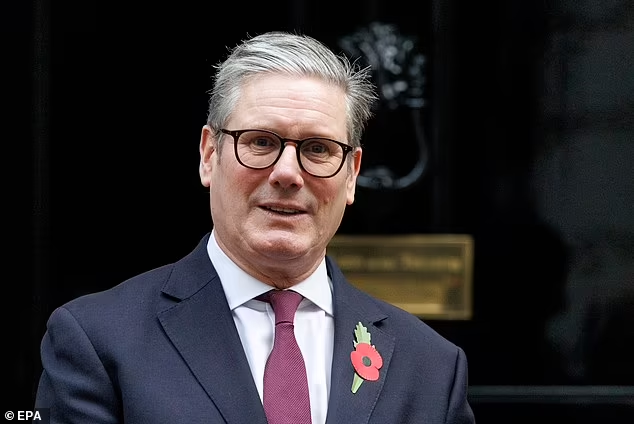LONDON — The United Kingdom suspended free trade negotiations with Israel and announced a new round of sanctions targeting West Bank settlers on Tuesday, intensifying diplomatic pressure over the mounting humanitarian crisis in Gaza and what it called “egregious” Israeli conduct.

The dramatic policy shift came hours after British Prime Minister Keir Starmer, alongside French President Emmanuel Macron and Canadian Prime Minister Mark Carney, issued a stern joint warning that Israel must halt its renewed offensive in Gaza or face “concrete actions.”
British Foreign Secretary David Lammy confirmed that the government would no longer advance talks on updating its trade agreement with Israel, citing unacceptable Israeli policies in both Gaza and the occupied West Bank. “History will judge them,” Lammy said in a press briefing. “Blocking aid. Expanding the war. Dismissing the concerns of your friends and partners. This is indefensible. And it must stop.”
Lammy detailed sanctions against three individuals, two illegal settler outposts, and two organizations supporting violence against Palestinian communities. He said Israel’s government was openly facilitating illegal settlement expansion in the West Bank — a move he described as a direct threat to regional stability and international law.
The Israeli Foreign Ministry quickly pushed back, calling the measures “unjustified and regrettable.” Spokesperson Oren Marmorstein claimed that trade talks had stalled for unrelated reasons and accused the U.K. of politicizing diplomacy.
Tensions between London and Jerusalem escalated further when Israeli Ambassador to the U.K. Tzipi Hotovely was summoned to the Foreign Office. Middle East Minister Hamish Falconer called Israel’s 11-week blockade of humanitarian aid to Gaza “cruel and indefensible.”
Speaking to lawmakers earlier in the day, Starmer said the suffering of children in Gaza was “utterly intolerable” and reiterated his call for an immediate ceasefire. “We are horrified by the escalation from Israel,” he said, stressing that ongoing conflict is undermining both humanitarian efforts and global security.

The diplomatic backlash is part of a broader trend of growing international disapproval. Since the October 7, 2023, Hamas-led attack that killed about 1,200 people in Israel and saw 251 taken hostage, global support for Israel has waned amid its sustained military retaliation. According to Gaza’s Health Ministry, over 53,000 Palestinians — mostly women and children — have died in the campaign, though the tally does not distinguish between combatants and civilians.
Despite international calls for restraint, Israeli Prime Minister Benjamin Netanyahu said this week that Israel would press forward until it had full control over the Gaza Strip. He dismissed criticism from allies as a “huge prize” for Hamas.
Though Israel began allowing limited aid deliveries this week after a near-total blockade lasting nearly three months, U.N. humanitarian chief Tom Fletcher called the gesture a “drop in the ocean” compared to the immense needs of Gaza’s besieged population. Dozens of aid trucks reportedly entered Gaza on Tuesday, but Fletcher said far more was necessary to avert famine.
Meanwhile, pressure on Israel continues to mount from across Europe. French President Macron has intensified diplomatic efforts in recent weeks, calling for a full ceasefire and an end to the humanitarian blockade. Macron also said France may soon formally recognize a Palestinian state — a move that could coincide with an upcoming international summit on the two-state solution.
In October, Macron drew the ire of Netanyahu after he proposed halting weapons shipments for use in Gaza and excluded Israeli defense contractors from the Euronaval trade exhibition. The European Union, along with the U.S., U.K., and Canada, has already sanctioned multiple Israeli settler groups for violent attacks on Palestinians and illegal development activities in the West Bank.
Though the sanctions include asset freezes and visa bans, analysts have questioned their efficacy, noting that previous measures had minimal deterrent effect.
Violent attacks by Israeli settlers against Palestinians have surged since the October 2023 conflict reignited. While the Israeli government claims such violence comes from extremist fringes, Palestinians accuse Israeli forces of enabling — or at least failing to prevent — a broader effort to displace them from their land.



